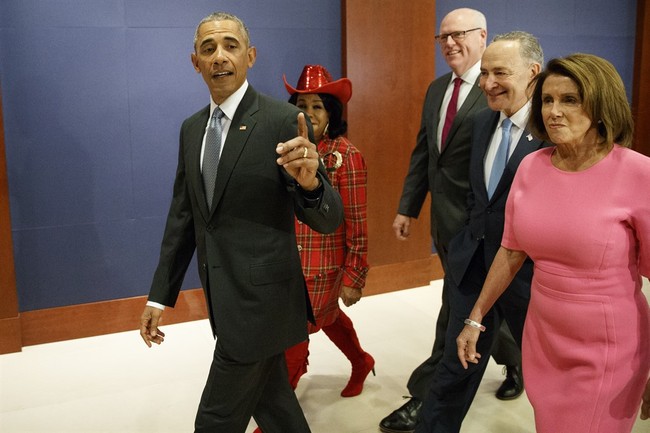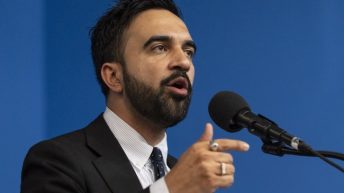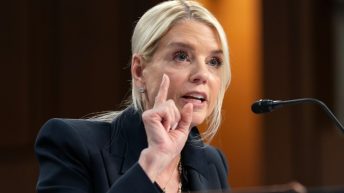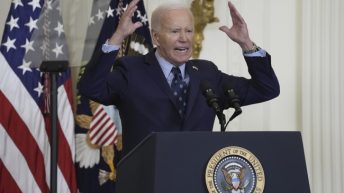New reporting from Jon Karl’s book paints a tense scene inside Democratic ranks after Joe Biden left the 2024 race, showing surprise and frustration from top figures — including Barack Obama — when Nancy Pelosi quickly endorsed Kamala Harris, upending an expected pause for a broader nomination process.
Jon Karl’s new book has dropped details that make the party’s backstage politicking look messy and impulsive. I wrote earlier about the cooler-than-advertised relationship between Barack Obama and Joe Biden around Biden’s withdrawal, and these new scenes fit that same narrative of elite discord. The book claims several Democrats privately agreed to a neutral process, and then those agreements unraveled in a hurry.
The account says Kamala Harris didn’t call members of Congress after Biden’s debate debacle to lobby them to keep Biden in the race, explaining she feared being seen as pushing her own interests. Instead, once Biden stepped down, Harris moved fast to secure his endorsement and shut the door on other contenders. That sudden jockeying set off alarm bells with people who thought a more orderly process would take place.
According to Karl, Obama felt blindsided when Pelosi moved to back Harris within 24 hours, because he’d expected a “process” to open things to more candidates. Obama believed Pelosi was aligned with him on abstaining from immediate endorsements so the field could be tested. She apparently didn’t wait, and that choice created a real rupture between expectations and action.
Karl wrote that Obama and Pelosi both “agreed Harris should not simply be handed the nomination unchallenged.”
“Therefore, Obama and Pelosi — arguably the two most influential figures in the Democratic Party — had privately agreed to abstain from making any endorsements,” the journalist claimed.
The pair had been in “regular communication” leading up to Biden’s July 21, 2024, withdrawal announcement, which is why Obama was so stunned by Pelosi’s decision to back Harris.
One close Pelosi ally told Karl, “The Obamas were not happy.” That line is interesting because it includes Michelle by implication, suggesting the upset wasn’t limited to a private shake of the head. Another source paraphrased Obama’s reaction as, essentially, “What the f**k did you just do?” which was described as ribbing by one Obama confidant even as Pelosi’s camp read it as genuine irritation.
Pelosi’s reported answer was that “that train has left the station,” and she lauded Harris as “brilliantly astute” in her public remarks. Plenty of people reading that will scoff at the praise, given the turmoil and questions about Harris’s appeal. Still, Pelosi’s move had the practical effect of narrowing options quickly and making the next steps inevitable.
It looks like Pence-style backroom decisions and fast endorsements replaced any public selection process Democrats supposedly wanted. Obama had pushed for something less top-down, but the speed of Pelosi’s endorsement undercut his leverage. The result was a scramble where elites reacted instead of coordinating, and voters ended up stuck with the fallout.
Those internal disagreements mattered because the candidate left standing struggled to articulate a coherent reason to ask people to vote for her. When party leaders fight over process and priority, the message to voters becomes muddled, and the opposition benefits. It is striking that these details surfaced in a post-election book rather than during the heat of the campaign when they might have mattered to voters.
Books like Karl’s often arrive after the votes are counted, offering salacious snapshots for readers to chew on once outcomes are fixed. That timing guarantees political gossip will travel without affecting the result, which can feel convenient for the insiders involved. Still, the revelations confirm a pattern: Democratic elites squabble over control, and the rest of us watch the consequences play out on the national stage.
The episode also underscores how quickly power can shift when a high-profile endorsement drops into the mix. Biden’s quick nod to Harris, paired with Pelosi’s prompt backing, closed off alternatives and forced alignment in a hurry. Whether that was clever maneuvering or a self-inflicted wound depends on your view of centralized decision-making within a party.
At the end of the day, the story shows that the people who claim to prefer open, democratic processes sometimes opt for speed and control when it suits them. That mismatch between rhetoric and behavior is part of what frustrates voters across the political spectrum. It also explains why books that lift the curtain on elite behavior tend to be popular long after the headlines fade.





Add comment